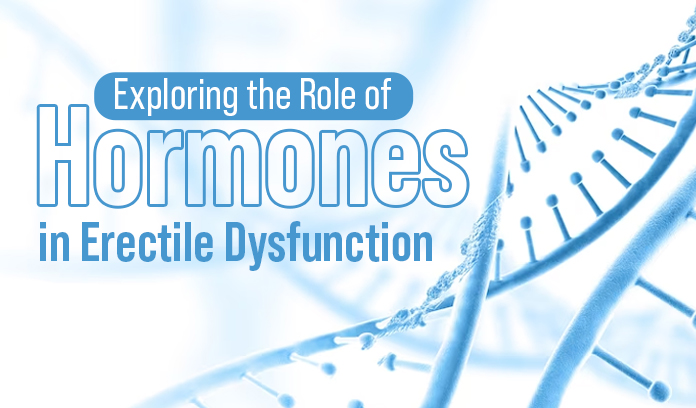Understanding Hormones and Their Functions
Hormones are chemical messengers produced by several glands in the body, including the pituitary gland, adrenal gland, and testes. They control essential bodily functions, including sexual development and reproductive health. Two hormones are particularly essential in the context of erectile dysfunction: testosterone and estrogen. Testosterone is the primary male sex hormone in charge of maintaining libido, energy levels, and erectile function. While estrogen is mostly present in females, it also exists in males and plays a role in maintaining overall sexual health.
Testosterone and Erectile Function
Testosterone is needed for the maintenance of healthy erectile function in men. It increases the production of nitric oxide, a molecule that relaxes the blood vessels of the penis, allowing for enhanced blood flow and the promotion of erections. Low testosterone levels can result in reduced sexual desire, decreased erectile function, and difficulties in getting or maintaining an erection. Reduced testosterone levels can be caused by hormonal imbalances, natural aging processes, obesity, certain medical diseases, and medication side effects, all of which can lead to erectile dysfunction.
Estrogen and Erectile Function
Although estrogen is largely a female hormone, men also produce small amounts of it as well. Estrogen regulates sexual function, bone health, and cardiovascular health in males. Obesity, excessive alcohol consumption, certain medication, or medical disorders such as liver disease can all cause estrogen imbalance. Elevated estrogen levels or testosterone imbalances can affect erectile function. High estrogen levels can lead to reduced libido, making it difficult to achieve or sustain an erection and decreasing overall sexual satisfaction.
Hormonal Treatment Options
When hormonal imbalances are discovered as contributing reasons to erectile dysfunction, hormone replacement therapy (HRT) may be used as a treatment option. HRT is the process of supplementing deficient hormones, such as testosterone, to restore optimal levels. However, because it involves potential risks and side effects, HRT should be prescribed and thoroughly monitored by a qualified healthcare professional. Changes in lifestyle, such as regular exercise, a well-balanced diet, stress management, and healthy sleeping habits, may also help improve hormonal balance and ease erectile dysfunction symptoms.
Conclusion
Hormonal imbalances, such as testosterone and estrogen, can significantly impact erectile function in men. Understanding the role of hormones in erectile dysfunction allows for appropriate interventions to address these imbalances and regain sexual health. Consultation with a healthcare professional is vital to determine the underlying causes and proper treatment options for each individual experiencing erectile dysfunction.

